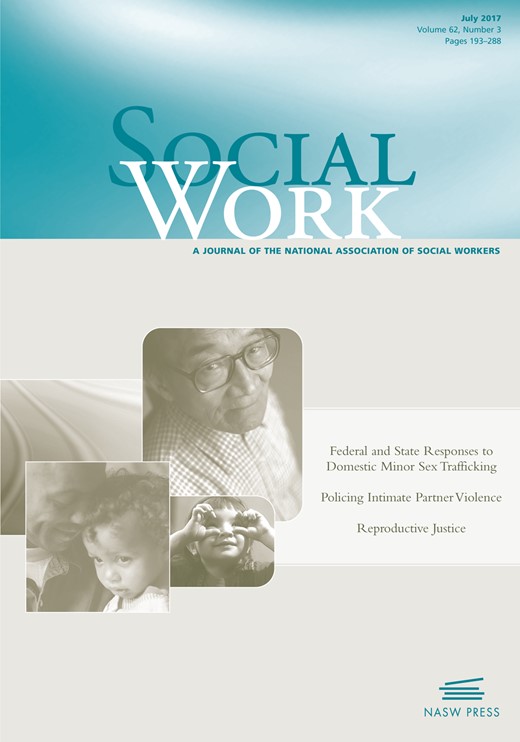-
Views
-
Cite
Cite
S. J. Dodd, Deborah Tolman, Reviving a Positive Discourse on Sexuality within Social Work, Social Work, Volume 62, Issue 3, July 2017, Pages 227–234, https://doi.org/10.1093/sw/swx016
Close - Share Icon Share
Abstract
Sexuality is not an invisible dimension within social work. Social workers are constantly engaged with aspects of sexuality across virtually all practice domains. Indeed, some of the most fundamental and frequent concerns of social workers involve sexual abuse, sexual violence, and HIV and other sexually transmitted infections. However, conversations about healthy sexuality, positive sexuality, or sexual well-being that are well ensconced in many disciplines are all but absent from current social work literature, education, and practice. In this academic silence, social work is missing a significant opportunity to contribute to the larger conversation around healthy sexuality in a way that illuminates a more holistic perspective and that acknowledges desire and sexual satisfaction across the spectrum, including among marginalized and oppressed groups. In this article, authors make the case for shifting away from a pervasive focus on sexuality as solely risk based to one of balance, incorporating the normative nature and importance of sexuality, intimacy, pleasure, and desire within social work curricula, practice, and dialogue in general. They encourage social workers to recognize sexuality as a critical site of intersectionality and argue for the integration of a multidimensional approach to sexuality within social work education, practice, and research.





